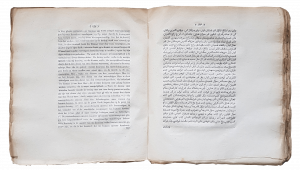Returning to Pre-Modern Malay Politics
January 13, 2021

In the The Edge Malaysia Weekly’s opinion piece, “Against the Grain: The relevance of pre-modern Malay political theory”, Professor Syed Farid Alatas reflects on the lessons contemporary Malay politics can learn from its pre-Modern political texts. Prof Alatas refers to the Taj al-Salatin, a text from the ‘nasihat’ (counsel-for-kings) genre, which informed and shaped pre-modern Malay politics. The nasihat genre functioned as a guide for the appropriate conduct and leadership practices of rulers.
Deemed the most influential text of Persian-inspired nasihat literature, the Taj al-Salatin is made up of four sections consisting of 24 chapters, and outlines an anti-feudal approach to governance. Feudal and Islamic political traditions are seen as opposing systems which continue to co-exist with disharmony in Malay society despite the abolition of feudalism. Echoing Malaysian scholar, Shaharuddin Maaruf’s work on the conflict between Islamic and feudal political traditions, Prof Alatas agrees that Islamic traditions “promote a more rational and egalitarian conception of authority”, unlike the feudalistic approach to politics.
Recognising that traces of a feudal mentality still exist in today’s political system, Prof Alatas urges influential political figures to leave behind the subservient attitudes and grandiose lifestyles associated with feudalism. Instead, he advises that Malay society should take a page out of the Taj al-Salatin to engage in traditional Malay politics, in order to shrink its disparities.
Read the article here.
